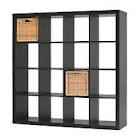News from the web:
Burgeoning research into students’ difficulties with mathematics is starting to tease out cognitive differences between students who sometimes struggle with math and those who have dyscalculia, a severe, persistent learning disability in math.
A new, decade-long longitudinal study by researchers at the Kennedy Krieger Institute in Baltimore, published Friday in the journal Child Development, finds that 9th-graders considered dyscalculic—those who performed in the bottom 10 percent of math ability on multiple tests—had substantially lower ability to grasp and compare basic number quantities than average students or even other struggling math students.
Read all about it HERE
Visit us at Dyscalculia Headlines
A service from Math and Dyscalculia Services

